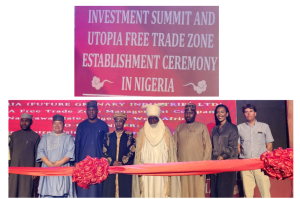Government investment, growth in tourism sectors shields African economies amid slowing global GDP growth

By Afusat Adeoye
Africa’s medium-term tourism prospects remain promising, supported by improvements in infrastructure, better air transport connectivity and easing visa regulations, a new report has revealed.
The report said that Regional powerhouses South Africa and Angola continue to weigh on Southern Africa’s prospects: the region’s growth remains sluggish at 1.3 per cent in 2020, with risks firmly stacked to the downside.
Power outages are taking a toll on the South African economy and fiscal pressures mean the country could well lose its investment-grade credit rating. Angola’s real GDP, meanwhile, looks to have contracted for a fourth straight year in 2019.
Speaking during the launch of the latest report, Michael Armstrong, ICAEW’s regional director for the Middle East, Asia and Africa, said: “Uncertainty around global developments remains especially elevated as we head into the new decade. The easing of trade tensions between the US and China lowers downside global GDP and trade growth risks. However, new challenges have surfaced. Mounting geopolitical tensions, especially relating to the stand-off between the US and Iran, have soured investor sentiment and provided a temporary boost to global oil prices.”
“Africa’s medium-term tourism prospects remain promising, supported by improvements in infrastructure, better air transport connectivity and easing visa regulations,” said Mr Armstrong.
East Africa remains the development hotspot of the continent, with growth projected to be at by 6 per cent in 2020..
Although regional growth is now clearly decelerating, East Africa still boasts some of the fastest-growing economies globally.
Rwanda, for instance, recorded growth of 10.9 per cent year-on-year during 2019 Q1-Q3, with public investment stimulating industry and rising consumption supporting the blossoming services sector.
Certain West African countries also warrant a mention in this regard, especially the likes of Côte d’Ivoire and Senegal. Unfortunately, the sluggish performance of the Nigerian economy continues to weigh heavily on West and Central Africa’s prospects, with regional growth seen rising only marginally to 3.1 per cent in 2020. Low oil prices raise the risk of additional foreign exchange restrictions being imposed.
Such restrictions, along with the protectionist policies pursued by Abuja (most recently illustrated by a decision to shut Nigeria’s land-based borders) prevent economic activity from gaining more traction.
Although political and security risks remain elevated in that region, North Africa’s growth is projected to pick up more strongly, rising from 3.1 per cent in 2019 to 3.7 per cent in 2020.
The Egyptian economy continues to expand at an impressive pace, and growth in Morocco and Tunisia is projected to rebound in 2020 following lacklustre agricultural performances in both countries last year.
Tunisia, in particular, faced significant challenges, with growth estimated at a mere 1.3 per cent in 2019. Aside from a marked slowdown in agricultural growth, frequent protests and weaker external demand contributed to a slump in industrial activity.
This was, however, partly offset by a strong rebound in tourist arrivals.







